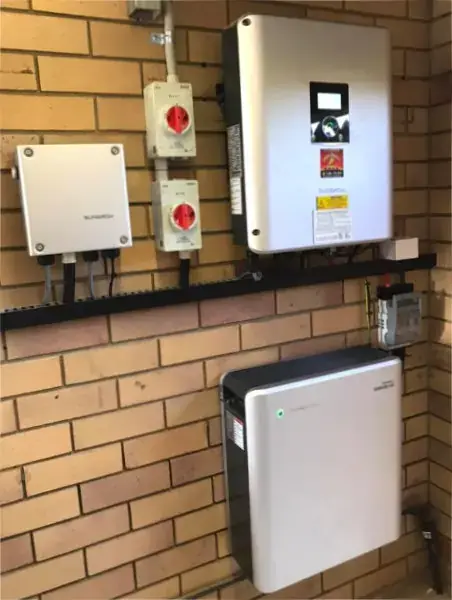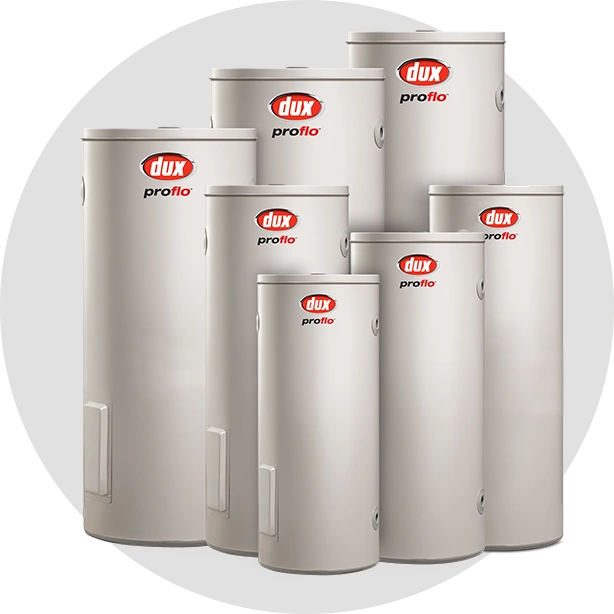Hot Water Systems Options
If you're shopping for a new hot water system or an upgrade and feel overwhelmed by the range of choices, you're not alone. There are several energy sources available, including electric, solar, and gas. If your property uses electricity as its energy source, then the decision is simple. Next, you need to consider the type of system, such as storage, instantaneous, or heat pump, which may require a bit more consideration. Before making a decision, you need to understand the differences between these options and how they will suit your needs. To help you decide, consider your hot water requirements, the power source, and your budget.
Each type of hot water system has its advantages and disadvantages, depending on factors such as energy source availability, initial cost, operating cost, installation complexity, and specific hot water demands.
Overview of Hot Water Systems
Each hot water system has its unique characteristics and suitable applications. It's interesting to note that most hot water system brands produce systems for each energy source and type. For example, Rheem offers electric, gas, and solar options in storage tank, instantaneous, and heat pump configurations.
Electric Hot Water Systems
Electric hot water systems offer a reliable, efficient, and safe solution for meeting hot water needs for households and businesses. Benefits include:
- Energy Efficiency: Electric systems have become increasingly energy efficient over time.
- Ease of Installation: Relatively easy to install, especially in areas where gas lines are not available or practical.
- Safety: Electric systems eliminate the risk of gas leaks, making them safer for indoor use.
- Consistency: They provide a consistent supply of hot water sources for daily needs.
- Low Maintenance: Compared to some other types of systems, electric hot water systems often require minimal maintenance, reducing long-term costs.
- Versatility: They can be installed in various locations, including apartments, houses, and commercial buildings.
Solar Hot Water Systems
You might think solar panels are necessary for solar hot water benefits, but that's not the case. Solar hot water systems primarily rely on solar collectors to harness solar energy for heating water, while solar panels are a separate technology used for generating electricity. Solar hot water systems offer a sustainable, cost-effective, and environmentally friendly solution for meeting hot water needs while reducing carbon footprint and energy expenses. Benefits of solar hot water include:
- Renewable Energy Source: Solar hot water systems harness energy from the sun, a renewable resource, reducing reliance on non-renewable energy sources like gas or electricity.
- Energy Cost Savings: By using free solar energy, homeowners can significantly reduce their energy bills over the long term, especially in sunny regions.
- Environmentally Friendly: Solar hot water systems produce fewer greenhouse gas emissions compared to traditional heating methods, contributing to a cleaner environment and combating climate change.
- Energy Independence: Solar hot water systems provide homeowners with greater energy independence, as they are less reliant on external energy suppliers and vulnerable to fluctuations in energy prices.
- Long-Term Investment: While the initial installation cost may be higher than conventional systems, solar hot water systems offer a good return on investment over their lifespan, typically lasting 20 years or more with regular maintenance.
- Low Operating Costs: Once installed, solar hot water systems have minimal operating costs since they rely on sunlight rather than fuel or electricity.
- Versatility: Solar hot water systems can be integrated with existing water heating systems, providing backup heating during periods of low sunlight or high demand.

Gas Hot Water Systems
Gas hot water systems whether its natural or LPG offer a reliable, efficient, and cost-effective solution for meeting hot water needs. When opting for gas you will need to have the installation done by a certified gas fitter to ensure a safe, correct and gas-compliant installation. Benefits of gas hot water include:
- Heating: Gas systems heat water quickly, providing hot water on demand, which is particularly advantageous for households with high hot water usage.
- Energy Efficiency: Gas is often a more cost-effective fuel source compared to electricity, resulting in lower energy bills for users of gas hot water systems.
- Reliability: Gas hot water systems typically provide a continuous supply of hot water, ensuring comfort and convenience for users.
- Temperature Control: Gas hot water systems often allow for precise temperature control, allowing users to adjust the water temperature according to their preferences.
- Versatility: Gas hot water systems can be suitable for various property types, including homes, apartments, and commercial buildings, providing flexibility in installation options.
- Independence from Electricity: Gas hot water systems can operate independently of electricity, ensuring hot water availability even during power outages, which is particularly important in areas prone to blackouts or emergencies.
- Lower Greenhouse Gas Emissions: While not as environmentally friendly as solar systems, modern gas hot water systems are more energy efficient and produce fewer greenhouse gas emissions compared to older models, contributing to reduced environmental impact.
- Long Lifespan: With proper maintenance, gas hot water systems can have a long operational lifespan, providing reliable hot water for many years.
Types of Hot Water Systems
Instantaneous Hot Water Systems - Continuous Flow
Instant hot water systems are also referred to as tankless or on-demand hot water systems As they do not have a tank with standby water they essentially are more energy-efficient Instant hot water systems are an excellent investment and can be used in commercial and domestic settings. Gas tankless water heaters use a gas burner, while electric tankless use electric coils to heat water. They are more compact and easier to install but may struggle to meet high hot water demands as opposed to gas.
Heat Pump Hot Water Systems
Heat pump systems use electricity to move heat from the air or ground to heat the water, rather than generating heat directly. They are highly energy-efficient but work best in moderate climates.
Storage Tank Water Heaters
These are the most common type and include a tank where water is heated and stored until needed. As the name suggests, these systems store hot water in a tank, providing you with an endless hot water supply. The tanks come in various sizes to accommodate the size of your household and needs. Gas storage tanks use natural gas or propane to heat water. They are generally more energy-efficient than electric ones but require a gas connection. On the other hand, an electric storage tank is typically easier to install but can be more expensive to operate due to electricity costs.

Leading Hot Water System Brands
Once you've determined the water heating system that best fits your requirements, you will need to choose the brand. At Eco Earth, we supply and provide comprehensive hot water services for the brands listed below.
- Rheem Hot Water Systems
- Rinnai Hot Water Systems
- Vulcan Hot Water Systems
- Dux Hot Water Systems
- Bosch Hot Water Systems
- Thermann Hot Water
- Chromagen Hot Water
- Zip Hot Water Systems
- Stiebel Eltron Hot Water
If you would like to know more about hot water system options contact our Sunshine Coast team on 0404 023 023 or complete our online enquiry form and we will be in touch
References
https://www.energy.gov.au/households/hot-water-systems
https://www.choice.com.au/home-improvement/water/hot-water-systems/buying-guides/hot-water-systems